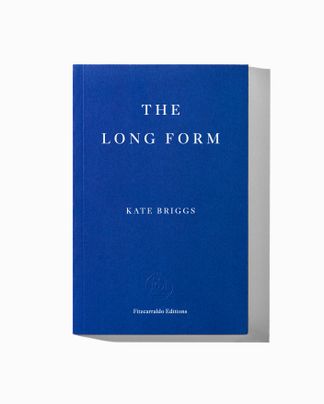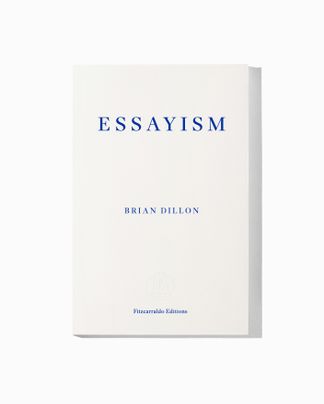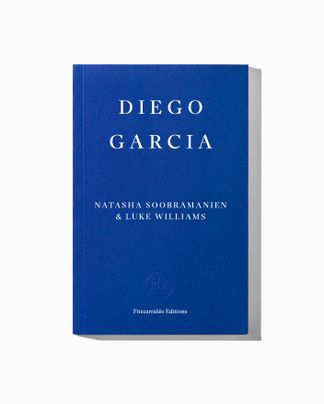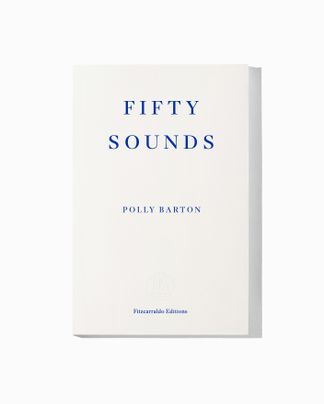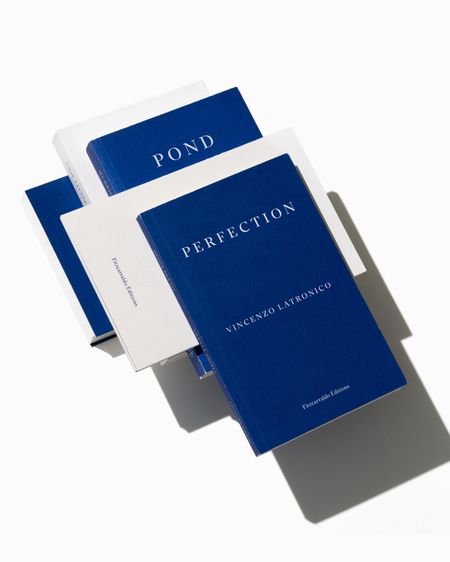An essay with the reach and momentum of a novel, Kate Briggs’s This Little Art is a genre-bending song for the practice of literary translation, offering fresh, fierce and timely thinking on reading, writing and living with the works of others. Taking her own experience of translating Roland Barthes’s lecture notes as a starting point, the author threads various stories together to give us this portrait of translation as a compelling, complex and intensely relational activity. She recounts the story of Helen Lowe-Porter’s translations of Thomas Mann, and their posthumous vilification. She writes about the loving relationship between André Gide and his translator Dorothy Bussy. She recalls how Robinson Crusoe laboriously made a table, for him for the first time, on an undeserted island. With This Little Art, a beautifully layered account of a subjective translating experience, Kate Briggs emerges as a truly remarkable writer: distinctive, wise, frank, funny and utterly original.
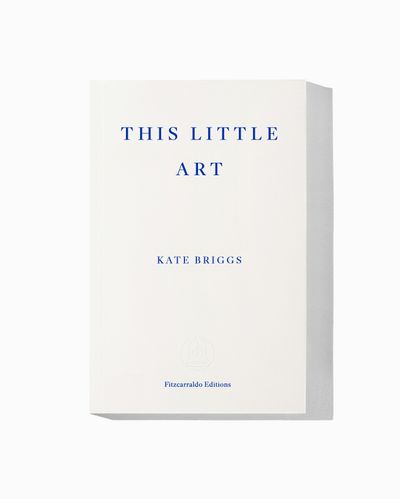
This Little Art
French paperback with flaps, 400 pages
Published 20 September 2017 (UK) | 17 April 2018 (US)
This Little Art
DRAGONESE
It’s Walpurgis-Nacht in the sanatorium and Hans Castorp, the hero of The Magic Mountain, has been made to feel hot and reckless by the atmosphere of carnival. Standing a small distance behind him, in the doorway of the little salon, is Frau Chauchat. She is dressed in a startling gown of thin, dark silk.
Was it black?
Probably.
Or, at most, shot with golden brown.
Cut with a modest little neck, round like a schoolgirl’s frock. Hardly so much as to show the base of her throat. Or the collar bones. Or, beneath the soft fringes of her hair, the slightly prominent bone at the back of her neck.
But all the while leaving bare to the shoulder her arms.
Arms so tender and so full.
So cool and so amazingly white, set off against the dark silk of her frock.
To such ravishing effect as to make Hans Castorp close his eyes. And murmur, deep within himself: ‘O my God!’
He had once held a theory about those arms. He had thought, on making their acquaintance for the first time – veiled, as they had been then, in diaphanous gauze – that their indescribable, unreasonable seductiveness was down to the gauze itself. To the ‘illusion’, as he had called it. Folly! The utter, accentuated, blinding nudity of those arms was an experience now so intoxicating, compared with that earlier one, as to leave our man no other recourse than, once again, with drooping head, to whisper, soundlessly: ‘O my God!’
Later, agitated by the silly drama of a drawing game, he’ll walk straight up to her and boldly ask for a pencil.
She’ll stand there, in her paper party cap, looking him up and down.
‘I?’ she’ll ask. ‘Perhaps I have, let me see.’
Eventually, she’ll fetch one up from deep within her leather bag: a little silver one, slender and fragile, scarcely meant for use.
‘Voilà,’ she’ll say, holding it up by its end in front of him, between thumb and forefinger, lightly turning it to and fro.
Because she won’t quite hand it to him, because she’ll give it to him and withhold it, he’ll take it, so to speak, without receiving it: that is, he’ll hold out his hand, ready to grasp the delicate thing, but without actually touching it.
‘C’est à visser, tu sais,’ she’ll say. You have to unscrew it.
And with heads bent over it together, she’ll show him the mechanism. It would be quite ordinary, the little needle of hard, probably worthless lead, coming down as one loosened the screw.
They’ll stand bending toward each other. The stiff collar of his evening dress serving to support his chin.
She’ll speak to him in French, and he’ll follow her.
He’ll speak to her in French uneasily, feeling for the sense.
A little further on she’ll command, a bit exasperated and more impersonally now: ‘Parlez allemand s’il vous plait!’
And in the copy of the novel I have open next to me as I read and write, Hans Castorp replies in English. Clavdia Chauchat has asked him, pointedly, in French, to address her in German, and his reply is written for me in English. I mean, of course it is. It’s an everyday peculiar thing: I am reading The Magic Mountain in Helen Lowe-Porter’s translation, first published in 1927. A novel set high up in the Swiss Alps, one of Germany’s most formative contributions to modern European literature (so the back cover of my edition tells me) and here they all are acting and interacting – not always, but for the most part – in English. And I go with it. I do. Of course I do. I willingly accept these terms. Positively and very gladly, in fact. Because with French but no German – I look at my bookshelves: also, no Italian and no Norwegian, no Japanese and no Spanish, no Danish and no Korean (and so on and so on) – I know that this is how the writing comes:
An unassuming young man named Hans Castorp travels up from his native city of Hamburg to Davos-Dorf. When the train stops at the small mountain station, he is surprised to hear his cousin’s familiar voice: ‘Hullo,’ says Joachim, ‘there you are!’
(…)
***
Read Ben Moser’s New York Times review of This Little Art here, and the responses to the review from Susan Bernofsky, Lydia Davis, Katrina Dodson, Karen Emmerich, John Keene, Duncan Large, Karen Van Dyck, Lawrence Venuti, Emily Wilson, Heather Green and Jo Salas in the New York Times’ ‘Letters to the Editors’ here.
***
The White Review Books of the Year 2018
‘Kate Briggs’s This Little Art shares some wonderful qualities with Barthes’s own work – the wit, thoughtfulness, invitation to converse, and especially the attention to the ordinary and everyday in the context of meticulously examined theoretical and scholarly questions. This is a highly enjoyable read: informative and stimulating for anyone interested in translation, writing, language, and expression.’
— Lydia Davis, author of Can’t and Won’t
‘I have been thinking, many weeks after having finished it, of Kate Briggs’ truly lovely This Little Art, a book-length essay on translation that’s as wry and thoughtful and probing as any book I’ve read in the past year. My favourite works are those in which one feels the writer wrestling with genre even as she is writing; Kate Briggs does this with her own kind of magic, never failing to write beguilingly and intelligently and passionately about the little art of translation, which in the end shows itself to be not so little, at all.’
— Lauren Groff, author of Fates and Furies
‘In This Little Art, a digressive, scholarly, absorbing 350-page essay, Kate Briggs roams across the vast terrain – practical, theoretical, historical, philosophical – of translation. Briggs’s writing is erudite and assured, while maintaining a tone that is modest and speculative; this paradox encapsulates something of the essence of translation, which is always contingent (no translation is ever definitive) yet also – for its time at least – authoritative…. There have been many books written about translation, but few as engaging, intriguing or exciting as Kate Briggs’s exploration, with its digressive forays, infinite self-questioning, curiosity, modesty and devotion to the concrete – the very qualities, as it happens, that distinguish the translator’s labour.’
— Natasha Lehrer, Times Literary Supplement
‘Maurice Blanchot once wrote that translators are “the silent masters of culture”. Kate Briggs amends this, commenting that Blanchot wrote “hidden masters of culture” and that it’s “our recognition” of translators’ “zeal” that “remains silent”…. Her engaging memoir unfolds in unnumbered, untitled, unstructured short chapters: a pillow book on the translator’s love affair with words and writers…. Briggs can sound like a visionary.’
— Marina Warner, London Review of Books
‘Lucid and engaging, Briggs’s book is essential, not just for translators, but anyone who has felt the magic of reading.’
— Publishers Weekly, starred review
‘In This Little Art, Kate Briggs looks at the “everyday, peculiar thing” that is translation, testing it out, worrying at its questions. She deftly weaves her recurring threads (Roland Barthes, Crusoe’s table, The Magic Mountain, aerobic dance classes) into something fascinatingly elastic and expansive, an essay – meditation? call to arms? – that is full of surprises both erudite and intimate, and rich in challenges to the ways we think about translation. And so, inevitably, to the ways we think about writing, reading, artistry and creativity, too. As a translator, I’m regularly disappointed by what I read about translation – it feels self-indulgent, irrelevant in its over-abstraction – but This Little Art is altogether different. It comes to its revelations through practicality, curiosity, devotion, optimism, an intense and questioning scrutiny, as the work of a great translator so often does.’
— Daniel Hahn, translator of José Eduardo Agualusa and winner of the International Dublin Literary Award in 2017
‘This Little Art is generous, sentimental and needle-sharp, fierce and hesitant, flawed and perfect. All of it, all at once. This, in the end, is Briggs’ dazzling conceit: This Little Art enacts what it is describing, the way it is written echoing what is written. We walk through her mind, we see her hover over thoughts, question herself, stop, start again. What could be read as misplaced self-effacement (Is this what I mean?, she wonders) is actually bold and brilliant: the gloriously digressive, curious, self-questioning, unapologetically subjective act of translation. In Briggs’ pauses, negotiations, vacillations, queries and many varied answers we see a translator at work – a writer at work – deliberating, deciding, stopping the run, making art.’
— Bella Bosworth, Litro
‘Not so much a demystification as a re-enchantment of the practice of literary translation, that maddening, intoxicating ‘little’ art which yokes humility and hubris, constraint and creativity – in Briggs’s passionate telling, you can practically see the sparks fly.’
— Deborah Smith, translator of Han Kang and winner of the Man Booker International Prize in 2016
‘[A] wonderful book … deeply, velvety rich and utterly life-affirming.’
— Manchester Review of Books
‘This Little Art reads like a jubilant tribute to that vital impulse that marks the reader’s attempt to engage with the pleasure of the text at the very basic level of language, a delight that derives from the minutiae of writing’s unfolding, the joy of seeing both how contingent language is and yet how absolutely necessary it appears in the works of writers and their translators … Briggs has written a testimony about the possibility of reading a text so intensely that one feels tempted to recreate it.’
— Carlos Fonseca, BOMB
‘Briggs interrogates and celebrates the art of translation. She wears her erudition lightly in this highly readable essay that makes intriguing connections and raises more questions than it answers. Urgent and pertinent questions that challenge us as readers, writers and translators and offer much food for thought.’
— Ros Schwartz, translator of Tahar Ben Jelloun, Georges Simenon and Antoine de Saint-Exupéry
‘This Little Art maps the current landscape and disputed territories of literary translation with exquisite precision. With xenophobia on the rise across the western world, the complex art of translation has achieved a new level of relevance for English-language readers and Briggs has crafted an excellent exploration of the reasons why.’
— Idra Novey, author of Ways to Disappear and translator of Clarice Lispector
‘Just as there is something intimate about the act of translation – the translator is inhabiting the text being translated, reading it as closely as possible – there is an intimacy to This Little Art, Kate Briggs’s wonderfully evocative essay on translation. We feel the author is talking to us from across the table about the most important things – novels, language, beauty, art – but in a confidential, friendly way, in a way that makes us listen more closely. Translation, Briggs shows us, is a conversation – between the author and translator, between the translator and reader – and it is this conversation that keeps literature alive. I hope this book will produce not only more readers appreciative of the art of translation, but also more translators willing to engage in the courageous and daunting task of true close reading, that most intimate act we call translation.’
— Charlotte Mandell, translator of Maurice Blanchot, Jonathan Littell and Mathias Enard
‘Though it does not present itself as a memoir, a how-to guide, or a scholarly monograph, This Little Art derives its magic precisely from being all of these and more: gifting us not only with a genre-bending work of imaginative criticism, but also a fitting metaphor for all that the work of translation is, and can be.’
— Theophilus Kwek, Asymptote
‘This Little Art is a generous and wonderfully subversive re-orientation of a discourse often limited to notions of fidelity and failure, but also a celebration of translation’s embeddedness in life … The stories of two women translators – Helen Lowe-Porter, who first brought Thomas Mann into English and made his reputation abroad, only to later be maligned by a new generation of critics, and Dorothy Bussy, André Gide’s devoted friend, translator, and correspondent for over thirty years – endow the book with a passion and depth of character to rival a novel.’
— Madeleine LaRue, Music & Literature
‘This Little Art is rich, full of insightful anecdote and surprising analysis. But what sticks with me, what I have learned and retained from this teacher who was never my teacher, from this book that was never a textbook, is a vivid sense of how often the normal moves of translation critique miss almost everything that is worth noting about the “little art” they seek to elucidate, especially when they forget the importance of pace, when they disregard the fact that the writing-again that is translation is also a writing-anew, and when they ignore the motivations, affect, and singularity of individual translators.’
— Jan Steyn, Music & Literature
‘This book is a gorgeous meditation on the practice of literary translation and the dynamic relationships translators develop toward their work. It is compulsively readable and it approaches the enchantments of language with irresistibly smart and intimate vignettes.’
— Lit Hub
‘Briggs does a compelling job of demystifying this world [of translation], hidden to most and often unsung … This Little Art is curiously structured … this informality lends it added warmth.’
— Buzz Magazine
‘A sympathetic and enchanting guide to the art of translation.’
— Digressions & Impressions
‘There is no other book on translation quite like This Little Art. It is a triumph and a joy; an ever-shifting kaleidoscope trained on a process which is too often invisible; and a reminder that choosing between one word and another is the basis not only of translation, but of working out what we think about the world.’
— Review 31
‘A compelling, philosophical exploration of the art and experience of working with and between languages.’
— Words Without Borders
—
Read an excerpt from the book on Lit Hub
Waiting Translations: Music & Literature in conversation with Kate Briggs
Kevin Breathnach interviews Kate Briggs for The Tangerine
Podcast: Kate Briggs and Daniel Hahn discuss the art of translation at the Institut français
—
Kate Briggs grew up in Somerset, UK, and lives and works in Rotterdam, NL, where she founded and co-runs the writing and publishing project ‘Short Pieces That Move’. She is the translator of two volumes of Roland Barthes’s lecture and seminar notes at the Collège de France: The Preparation of the Novel and How to Live Together, both published by Columbia University Press. The Long Form follows This Little Art, a narrative essay on the practice of translation. In 2021, Kate Briggs was awarded a Windham-Campbell Prize.

